Coronavirus: £3bn for NHS to prepare for possible second wave
- Published
- comments
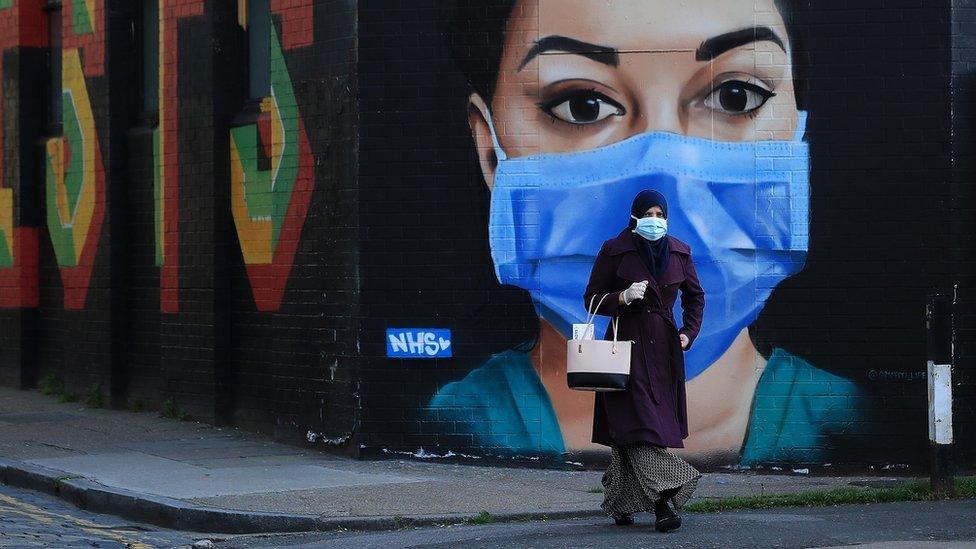
The NHS in England will get an extra £3bn of funding to prepare for a possible second wave of coronavirus, Boris Johnson has announced.
The funding will also help ease winter pressures on the health service, Downing Street said.
It follows warnings a second wave this winter could see as many as 120,000 Covid-19 deaths in UK hospitals.
The prime minister made the funding commitment at a No 10 briefing, where he also pledged a new testing target.
Capacity will be increased to at least 500,000 tests a day by the end of October, Mr Johnson said.
Confirming the extra £3bn in funding for the NHS in England, he said Covid-19 could become "more virulent" in winter.
The prime minister said: "Demand for testing is not the only challenge that winter will bring. It's possible that the virus will be more virulent in the winter months and it's certain that the NHS will face the usual annual winter pressures."
He added: "We're making sure we're ready for winter and planning for the worst."
Scotland, Wales and Northern Ireland will also receive additional funds, Mr Johnson added.
Meanwhile, Health Secretary Matt Hancock has called for an urgent review into how coronavirus deaths have been recorded in England.
Downing Street said the new NHS funding would be available immediately and would allow the NHS to continue using additional private hospital capacity and maintain the temporary Nightingale hospitals until the end of March 2021.
This will provide additional capacity for coronavirus patients, as well as allowing the NHS to carry out routine treatments and procedures, No 10 said.
Non-urgent operations were suspended as the UK went into lockdown, to free up hospital beds during the first wave of coronavirus - but in May NHS England told hospitals they should restart procedures.


In normal times an announcement of £3bn to help the NHS in England cope with winter pressures might look generous.
But these are not normal times as the government pumps tens of billions into the economy to soften the blows of the coronavirus crisis.
The head of NHS England, Sir Simon Stevens, has been in talks with the Treasury to get guarantees that the Nightingale hospitals can stay open through until next spring in case there is another Covid surge.
He also wanted secure funding in place to do a deal with private hospitals to help tackle the backlog of cancelled non urgent operations such as hip and knee replacements.
That money now seems to have been secured, though we await further details.
The question is, will this be enough to get the health service through what could be one of the most difficult winters in its history?
There have been predictions that the waiting list for routine surgery will swell to 10 million as fears of a second wave of Covid cases in the depths of winter won't go away.

Highlighting other measures to protect the NHS as it heads into the winter, Mr Johnson said the government would carry out the biggest flu vaccination programme in the history of the health service, while supplies of personal protective equipment (PPE) and ventilators had also increased.
The announcement was made as the prime minister announced a further easing of lockdown measures.
The prime minister encouraged people to return to using public transport, while advice for employers will change from 1 August.
From the beginning of next month, Mr Johnson said employers would have more discretion to bring staff back to the workplace providing it was safe to do so.
Since late March the government had been advising people to work from home if possible to help curb coronavirus.
Last week Mr Johnson had signalled a change, saying: "I think we should now say, well, 'Go back to work if you can'."
But the UK's chief scientific adviser, Sir Patrick Vallance, told MPs on Thursday there was "absolutely no reason" to change the government's current guidance on working from home.
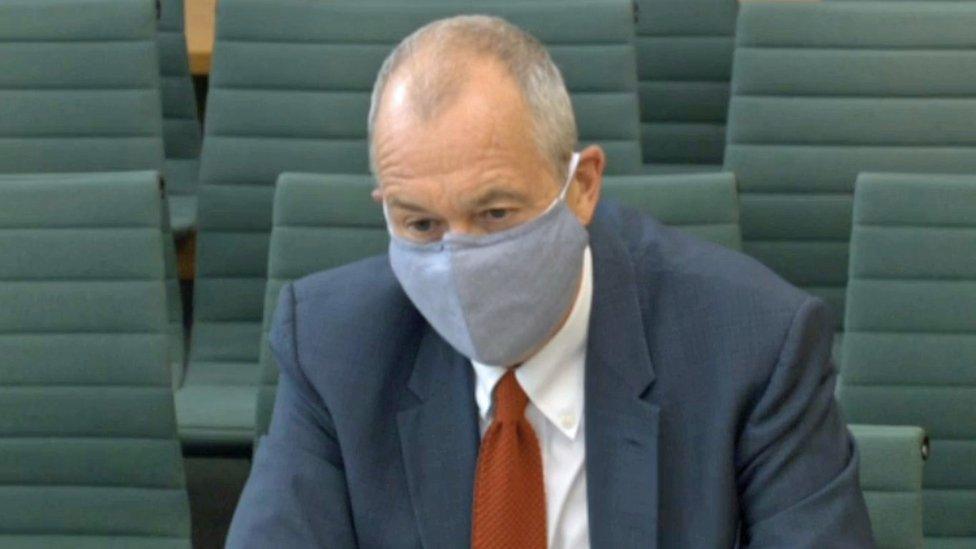
Sir Patrick wore a mask as he spoke to the Commons Science and Technology Committee on Thursday

SOCIAL DISTANCING: What are the rules now?
40,000 DEATHS: Could they have been prevented?
LOOK-UP TOOL: How many cases in your area?

Second wave fears
Earlier this week a report, requested by Sir Patrick, called for immediate action to reduce the risks posed by a second wave of coronavirus this winter.
Among its recommendations were increasing the capacity of the test and trace programme and having more people vaccinated against flu.
Asked to model a "reasonable" worst-case scenario, scientists suggested a range of between 24,500 and 251,000 virus-related deaths in hospitals alone, peaking in January and February.
The estimate does not take into account any lockdowns, treatments or vaccines.
What factors determine a potential second wave of Covid-19 infections?
Research suggests the virus can survive longer in colder conditions and is more likely to spread when people spend more time indoors.
Experts are also concerned the NHS will be under extreme pressure, not just from a resurgence of coronavirus but also from seasonal flu and a backlog of regular, non-coronavirus workload.
'We need transparency'
The British Medical Association chairman, Chaand Nagpaul, has called for more detail on how the £3bn funding will be used.
"The government talks of winter planning, but we need transparency on this, including how far this money can stretch in tackling a modelled worst-case forecast - including a second peak, additional non-Covid demand and a possible flu outbreak," Dr Nagpaul said.
"Crucially, the government must make prevention a priority and take every necessary step to try and avoid a national second spike all together."
NHS Providers, which represents hospitals and other NHS organisations, echoed the call for clarity over what the money will be used for, saying funding is already in place for Nightingale hospitals and private beds.
While welcoming the financial support, deputy chief executive Saffron Cordery added: "Trusts need more than that. They have got to recover the lost ground of the last four or five months and put measures in place to manage the additional activity that always happens in winter."

YOU, ME AND THE BIG C: Cancer treatment during the pandemic
GROUNDED WITH LOUIS THEROUX: The ten most surprising moments from the lockdown podcast

- Published4 May 2020
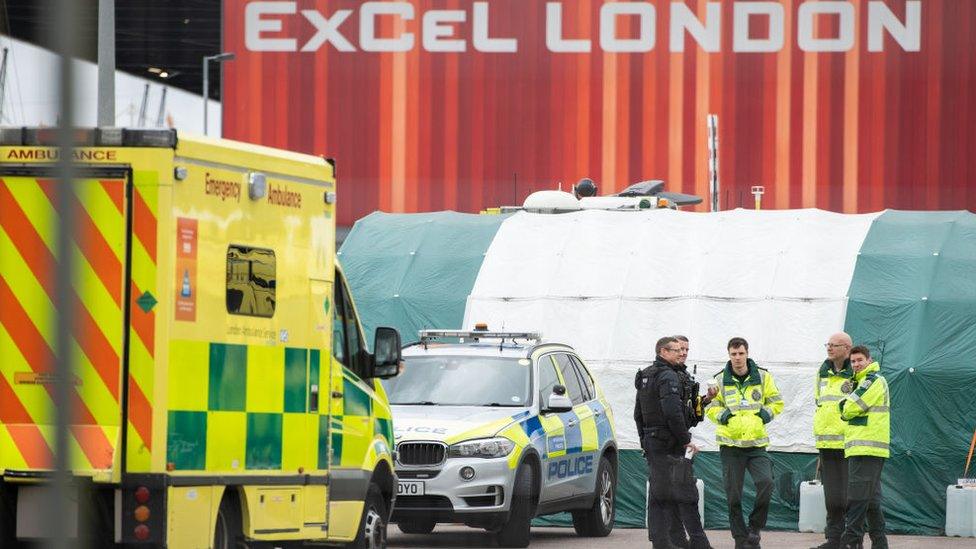
- Published14 July 2020
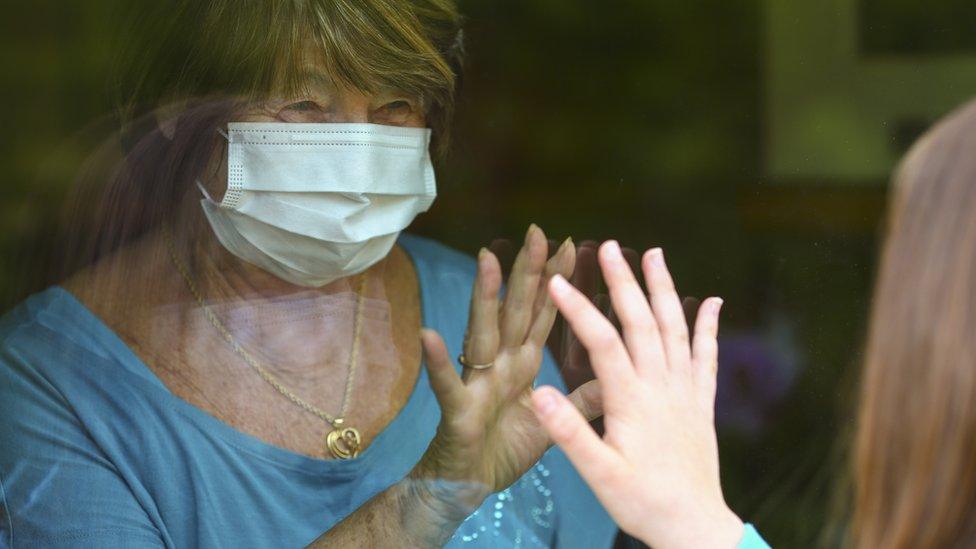
- Published24 June 2020
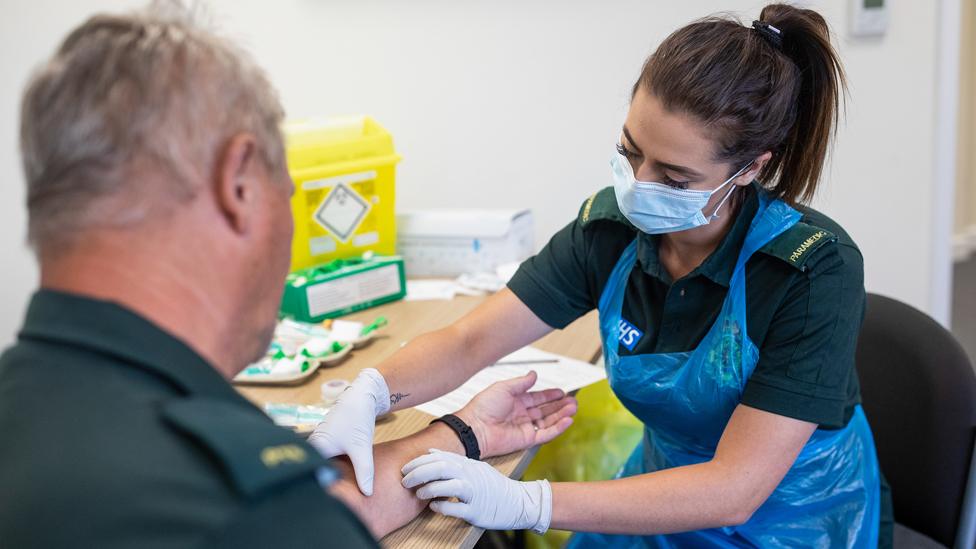
- Published15 March 2022
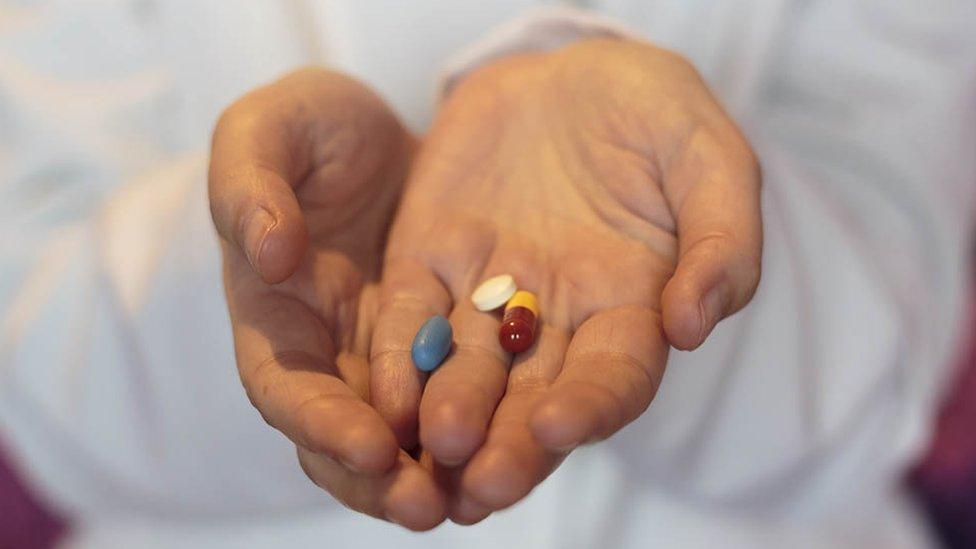
- Published28 May 2021
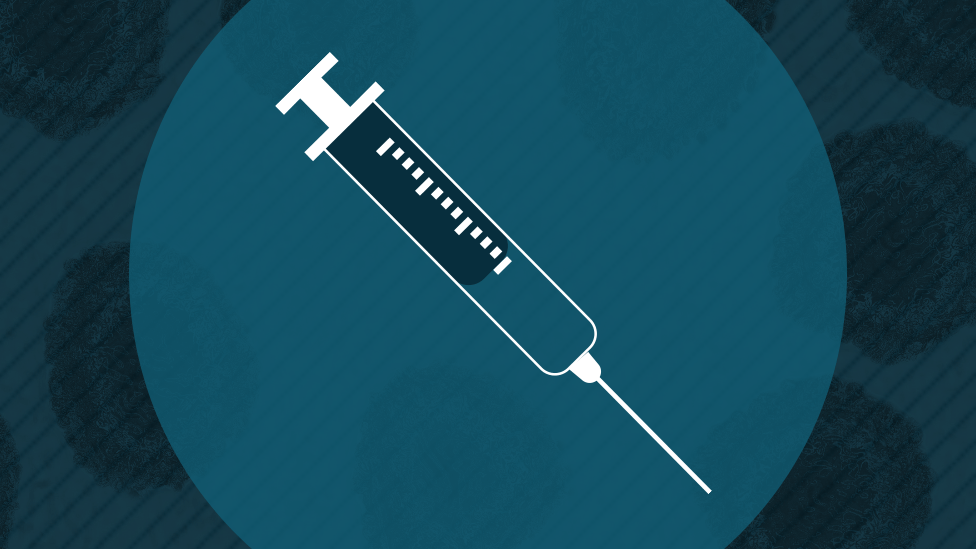
- Published3 May 2022
